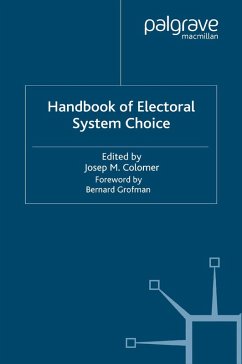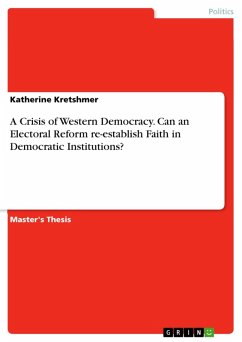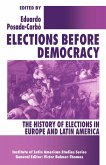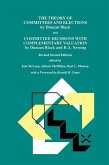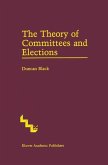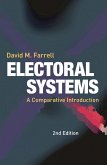The topic of electoral reform is an extremely timely one. The accelerated expansion of the number of new democracies in the world generates increasing demand for advice on the choice of electoral rules; at the same time, a new reformism in well established democracies seeks new formulae favouring both more representative institutions and more accountable rulers. The Handbook of Electoral System Choice addresses the theoretical and comparative issues of electoral reform in relation to democratization, political strategies in established democracies and the relative performance of different electoral systems. Case studies on virtually every major democracy or democratizing country in the world are included.
Dieser Download kann aus rechtlichen Gründen nur mit Rechnungsadresse in A, B, BG, CY, CZ, D, DK, EW, E, FIN, F, GR, HR, H, IRL, I, LT, L, LR, M, NL, PL, P, R, S, SLO, SK ausgeliefert werden.
'Electoral studies have long focused more on the effects than the causes of electoral rules. As Josep Colomer notes in his introduction to this volume,
however, the very strength of the effects leads to a natural line of theorizing about causes: Parties introduce new rules in anticipation of their effects on
those parties' future electoral fortunes. The individual essays in this volume
show that this simple notion plays out in many and sometimes subtle ways in
particular cases. Cumulatively, they provide the most extensive collection we
possess to date. Moreover, Colomer's synoptic overview shows that there is an important general trend visible in the historical record, toward greater
proportionality. Every serious student of electoral systems will want this
handbook on their shelf.' - Gary W. Cox, Professor of Political Science, University of California, San Diego
'This volume goes a long way in providing the necessary detailed historical evidence about the roots of electoral system change for a large and diverse set of democratic nations throughout recent history. Professor Colomer offers a new and highly original theory of electoral change which lays the groundwork for a radical revision of what has become the common wisdom about the effects of electoral laws. The chapters provide us a wealth of new information and new theoretical insights.' - From the Foreword by Bernard Grofman, Professor of Political Science and Mathematical Behavioral Science, University of California, Irvine
however, the very strength of the effects leads to a natural line of theorizing about causes: Parties introduce new rules in anticipation of their effects on
those parties' future electoral fortunes. The individual essays in this volume
show that this simple notion plays out in many and sometimes subtle ways in
particular cases. Cumulatively, they provide the most extensive collection we
possess to date. Moreover, Colomer's synoptic overview shows that there is an important general trend visible in the historical record, toward greater
proportionality. Every serious student of electoral systems will want this
handbook on their shelf.' - Gary W. Cox, Professor of Political Science, University of California, San Diego
'This volume goes a long way in providing the necessary detailed historical evidence about the roots of electoral system change for a large and diverse set of democratic nations throughout recent history. Professor Colomer offers a new and highly original theory of electoral change which lays the groundwork for a radical revision of what has become the common wisdom about the effects of electoral laws. The chapters provide us a wealth of new information and new theoretical insights.' - From the Foreword by Bernard Grofman, Professor of Political Science and Mathematical Behavioral Science, University of California, Irvine

